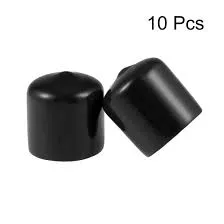Mobile:+86-311-808-126-83
Email:info@ydcastings.com
Aluminum Die Casting Manufacturer for High-Quality Custom Components and Solutions
The Relevance of Aluminum Die Casting Factories in Modern Industry
Aluminum die casting is a manufacturing process that involves forcing molten aluminum alloy into a mold cavity under high pressure. The process results in high-precision, complex shapes that are essential for numerous industries today, ranging from automotive to aerospace, and consumer electronics to appliances. As the need for lightweight, durable components continues to grow, aluminum die casting factories have emerged as critical players in the manufacturing sector.
The Advantages of Aluminum Die Casting
One of the primary reasons aluminum die casting has gained widespread popularity is its numerous advantages over other manufacturing processes. Aluminum is lightweight yet strong, making it an ideal material for applications where weight reduction is crucial. This is particularly important in the automotive industry, where manufacturers strive to improve fuel efficiency without compromising safety or performance. By substituting heavier materials like steel with aluminum, vehicles can become lighter, which directly leads to lower fuel consumption and reduced greenhouse gas emissions.
Moreover, aluminum die casting produces components with excellent surface finishes and tight tolerances. This precision is vital for components that must fit together seamlessly, ensuring machinery operates smoothly and efficiently. The ability to cast complex shapes also minimizes the need for additional machining operations, which can save both time and costs in the production process.
The Process of Aluminum Die Casting
The aluminum die casting process generally involves several key steps. Initially, raw aluminum is melted in a furnace, and then it is injected into a mold that has been pre-treated with a lubricant to facilitate the release of the finished part. Once the aluminum cools and solidifies, the mold is opened, and the casting is ejected. This cycle volume can often be increased with the use of automated equipment, enhancing efficiency and productivity in a factory setting.
Aluminum die casting factories typically employ cold chamber or hot chamber die casting methods, depending on the specific requirements of the product and the alloy being used. The choice between these methods can affect not only the production speed but also the quality of the final product. Cold chamber die casting is commonly used for high-temperature alloys, while hot chamber die casting is suitable for lower melting point alloys.
aluminium die casting factory

Innovations in Aluminum Die Casting
As technology advances, so does the aluminum die casting industry. Innovations such as computer-aided design (CAD) and computer numerical control (CNC) machining have significantly improved the design and production capabilities of die casting factories. These technologies enable manufacturers to simulate the die casting process before physically producing parts, allowing for optimization in design and reducing waste.
Additionally, the integration of industry 4.0 technologies, such as IoT (Internet of Things) and machine learning, is paving the way for smarter manufacturing practices. By using sensors and data analytics, factories can monitor processes in real-time, leading to enhanced quality control, predictive maintenance, and overall operational efficiency. These advancements not only improve product quality but also reduce lead times and costs, making aluminum die casting an even more competitive choice.
Environmental Considerations
Environmental sustainability is also becoming a significant focus for aluminum die casting factories. Aluminum is 100% recyclable, and the recycling process requires only about 5% of the energy needed to produce new aluminum from ore. As nations move towards greener practices, aluminum die casting provides a promising solution for manufacturing lighter, energy-efficient products while minimizing environmental impact.
Many factories are also adopting eco-friendly practices throughout their operations, including waste reduction, energy-efficient machinery, and sustainable sourcing of materials. By prioritizing sustainability, aluminum die casting factories are positioning themselves not only as leaders in manufacturing but also as responsible stewards of the environment.
Conclusion
In summary, aluminum die casting factories play a vital role in the modern manufacturing landscape. With their ability to produce lightweight, complex components with high precision, they are indispensable across a range of industries. As technology continues to evolve and sustainability becomes a priority, these factories are adapting in innovative ways to meet the needs of their customers while contributing to a more sustainable future. The relevance of aluminum die casting in today’s economy is poised to grow, making it an exciting field for both manufacturers and consumers alike.
-
Why Should You Invest in Superior Pump Castings for Your Equipment?NewsJun.09,2025
-
Unlock Performance Potential with Stainless Impellers and Aluminum End CapsNewsJun.09,2025
-
Revolutionize Your Machinery with Superior Cast Iron and Aluminum ComponentsNewsJun.09,2025
-
Revolutionize Fluid Dynamics with Premium Pump ComponentsNewsJun.09,2025
-
Optimizing Industrial Systems with Essential Valve ComponentsNewsJun.09,2025
-
Elevate Grid Efficiency with High-Precision Power CastingsNewsJun.09,2025











